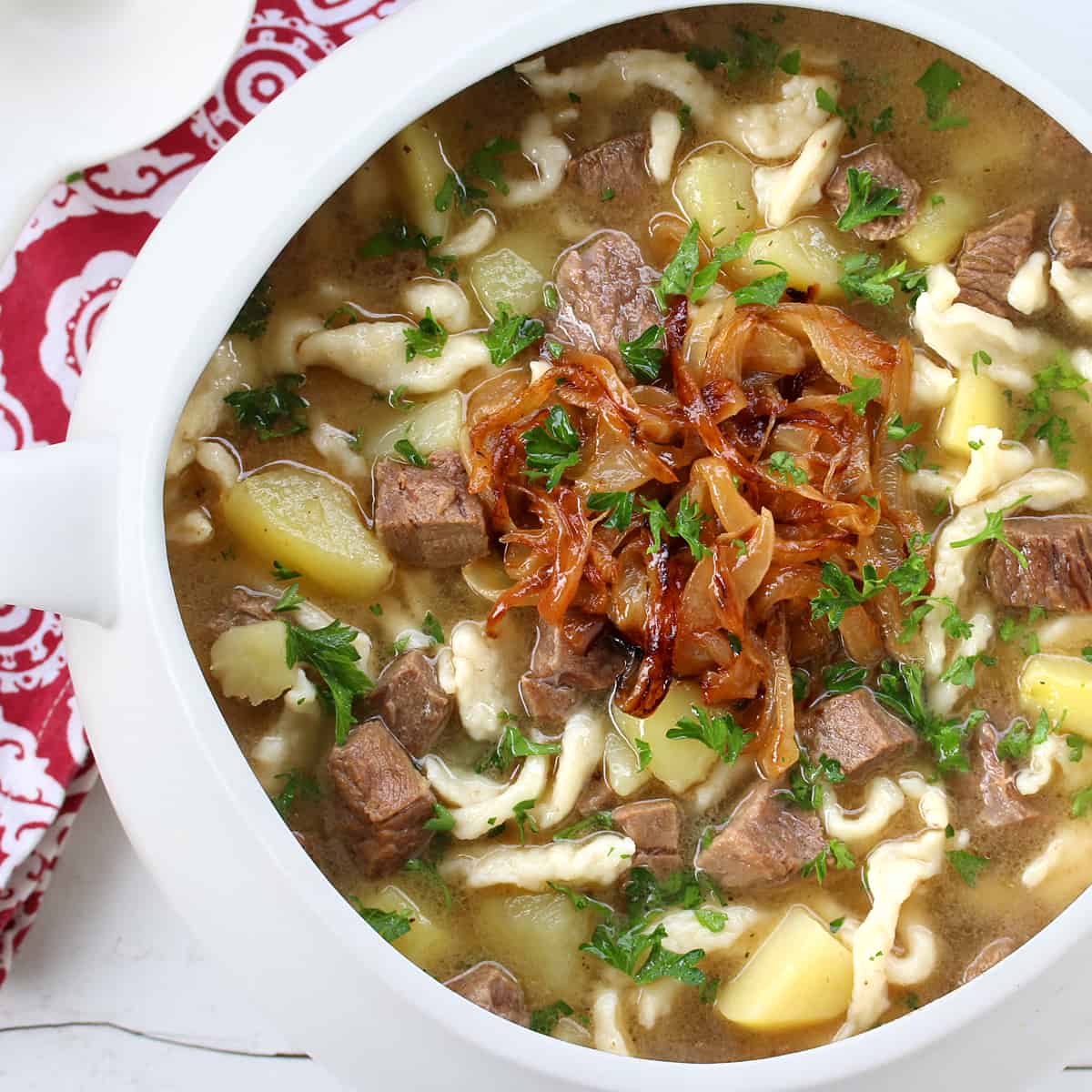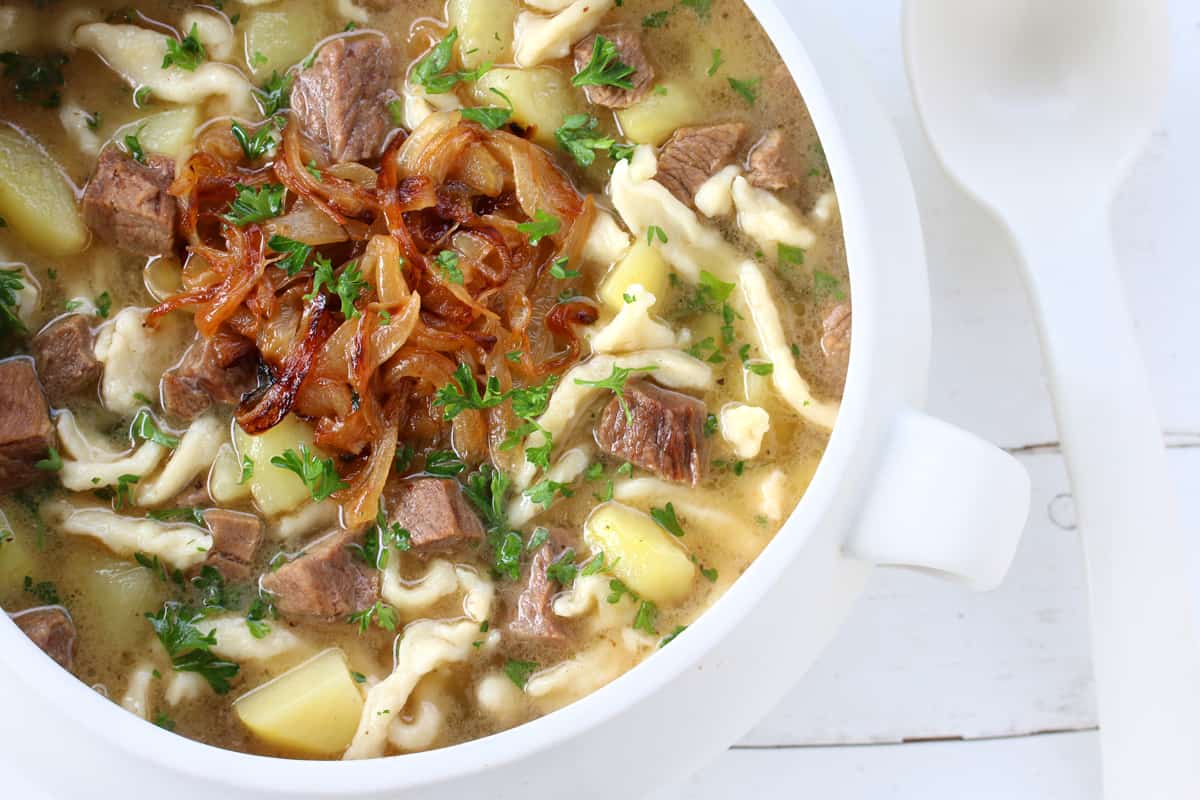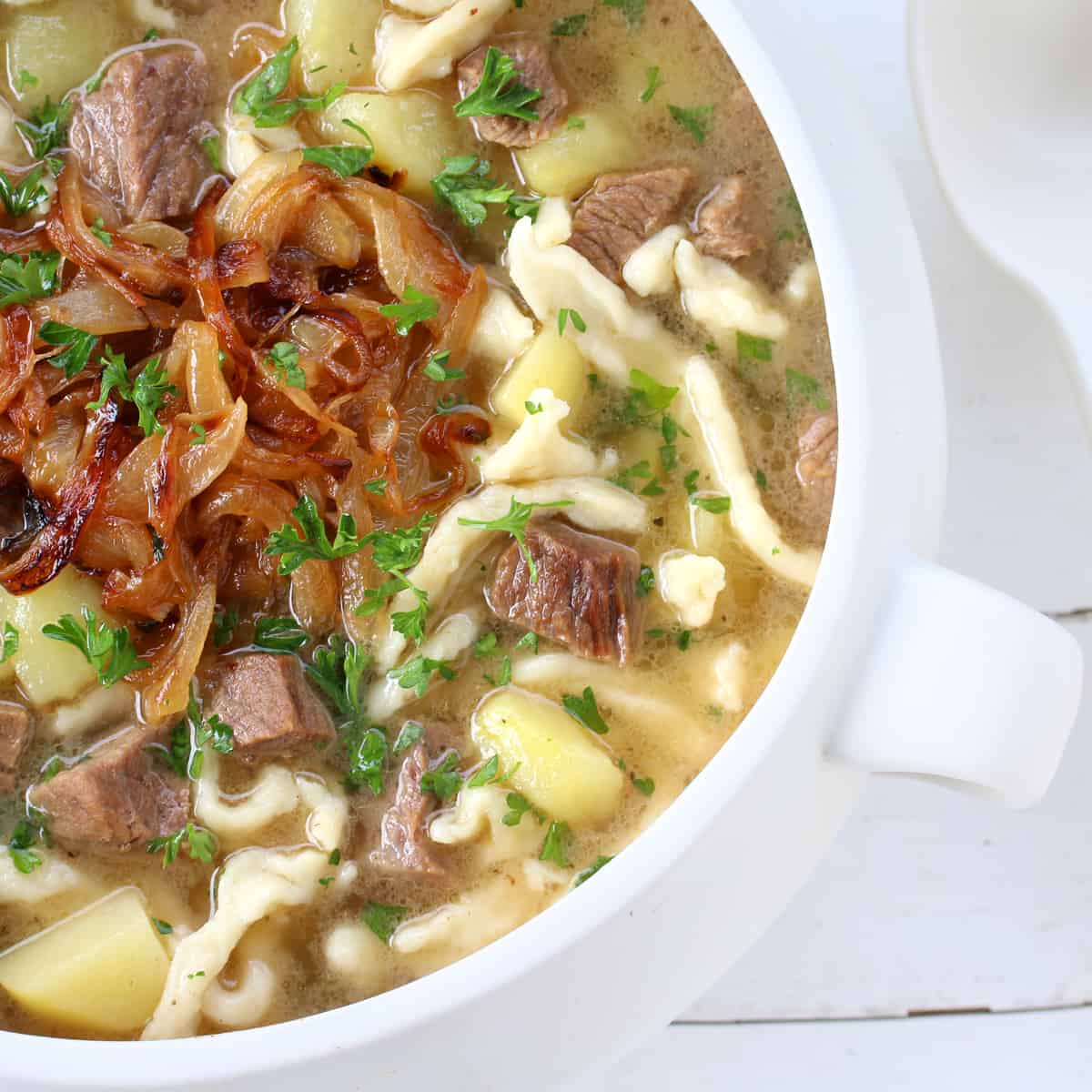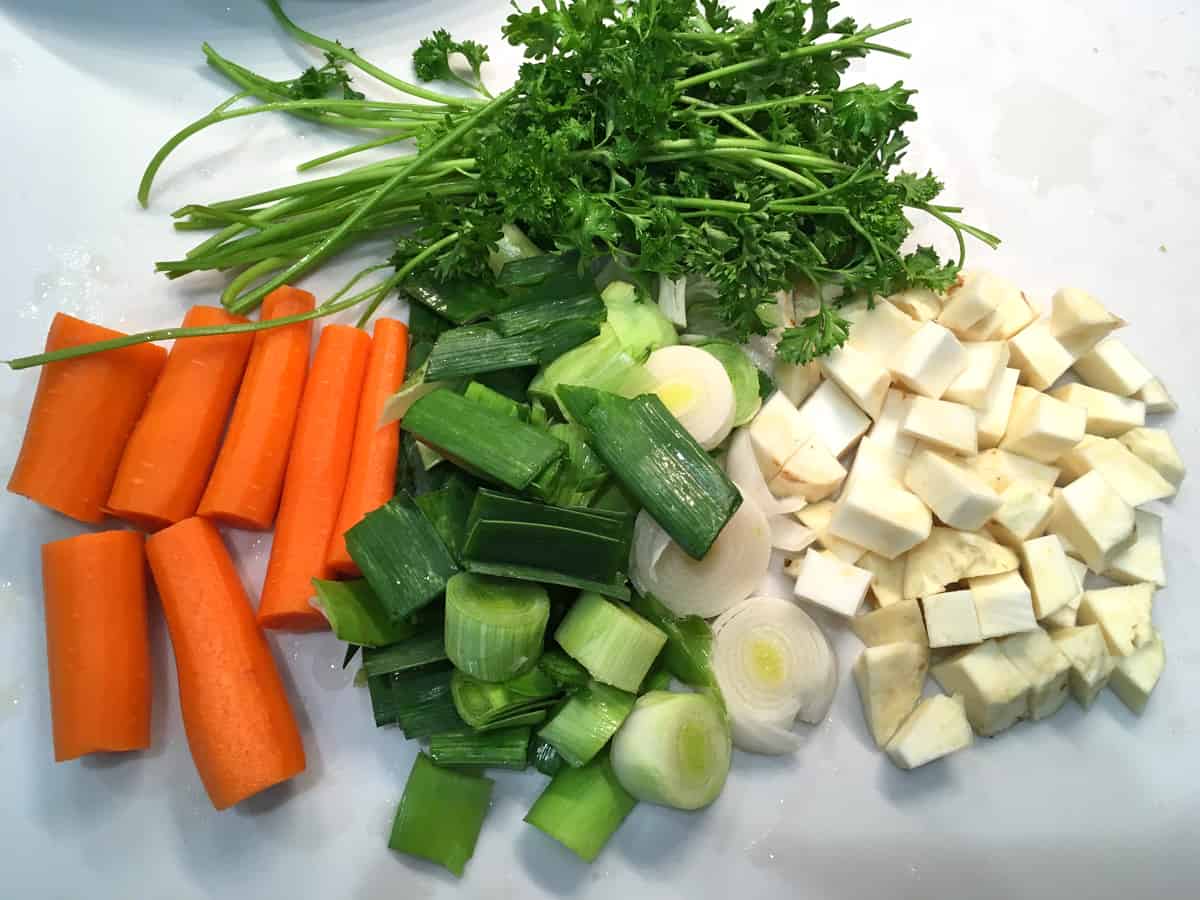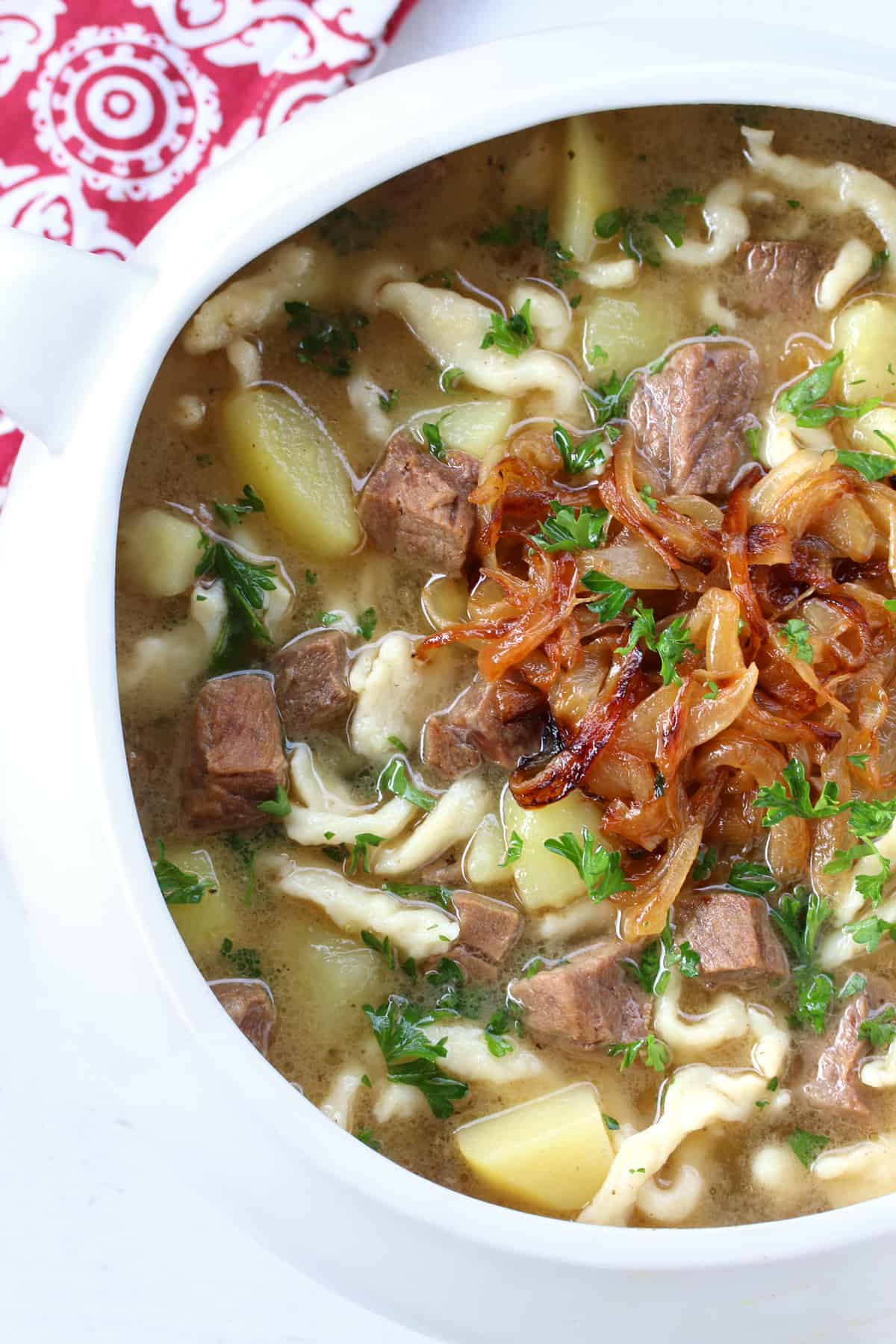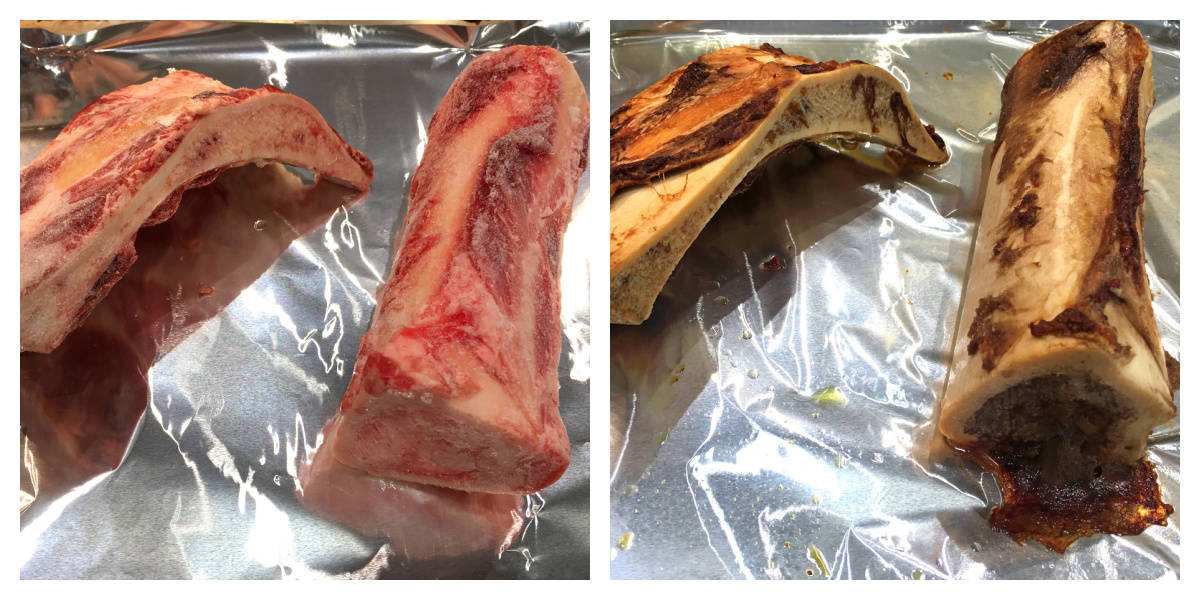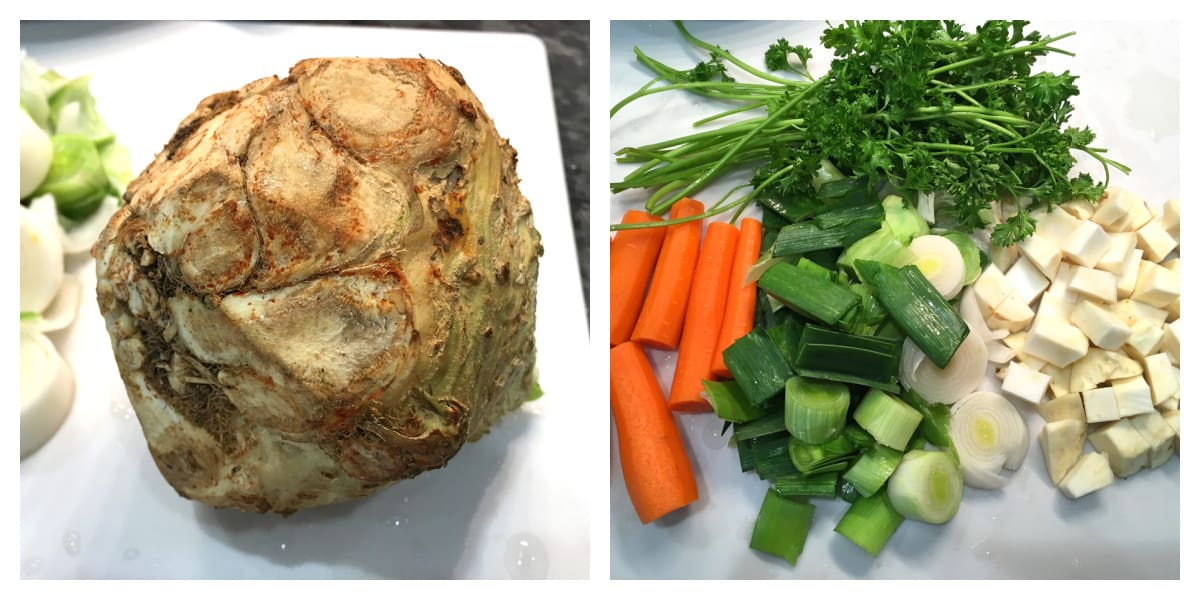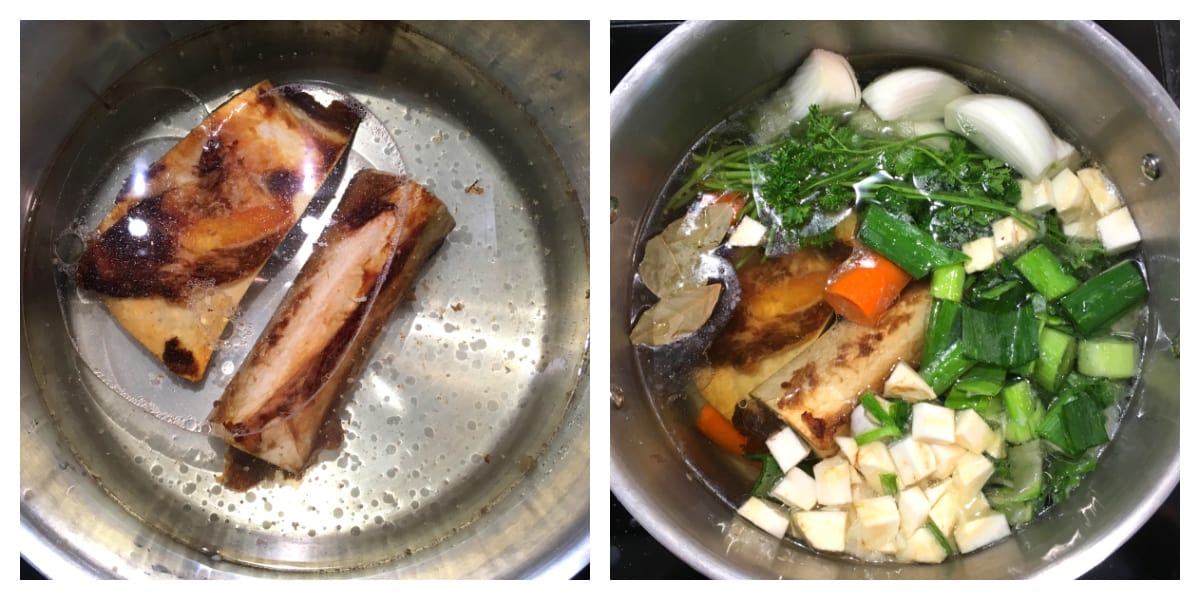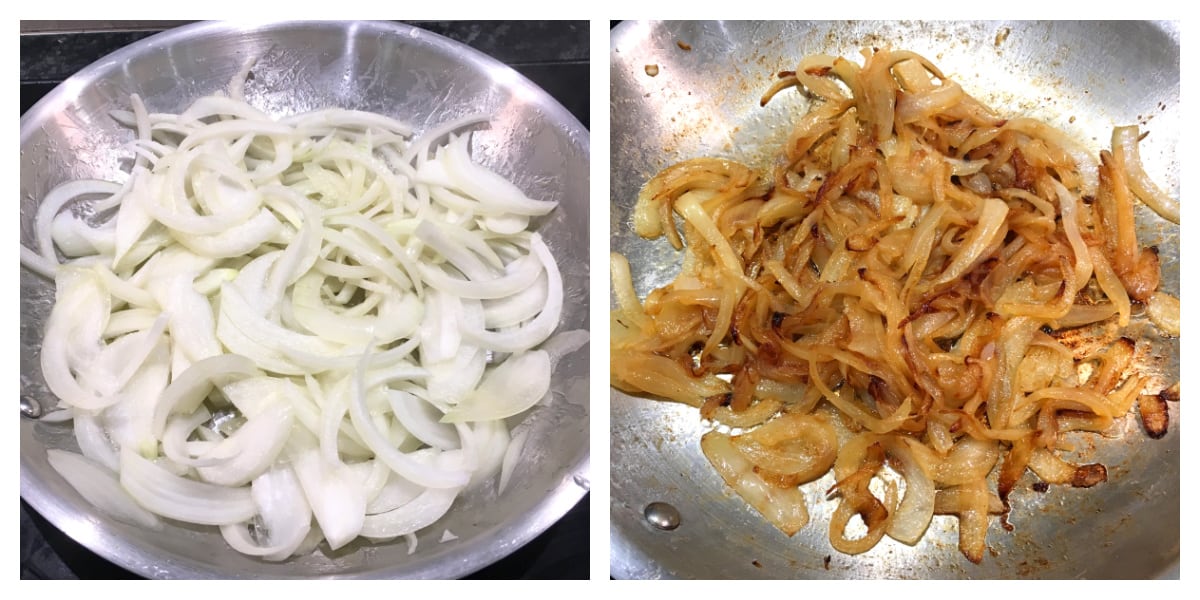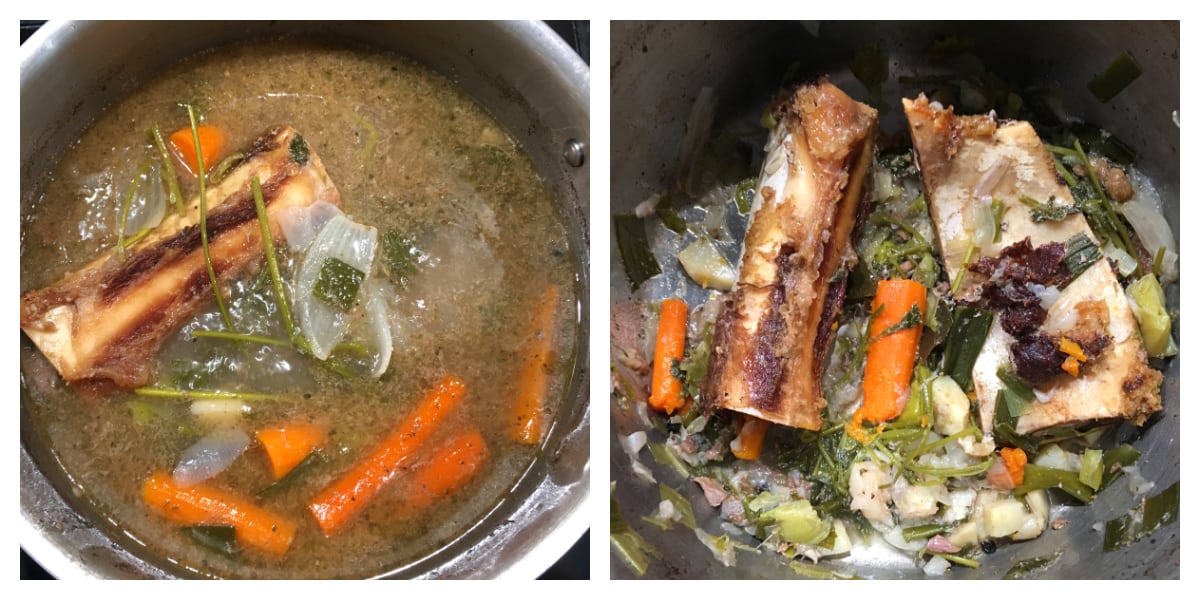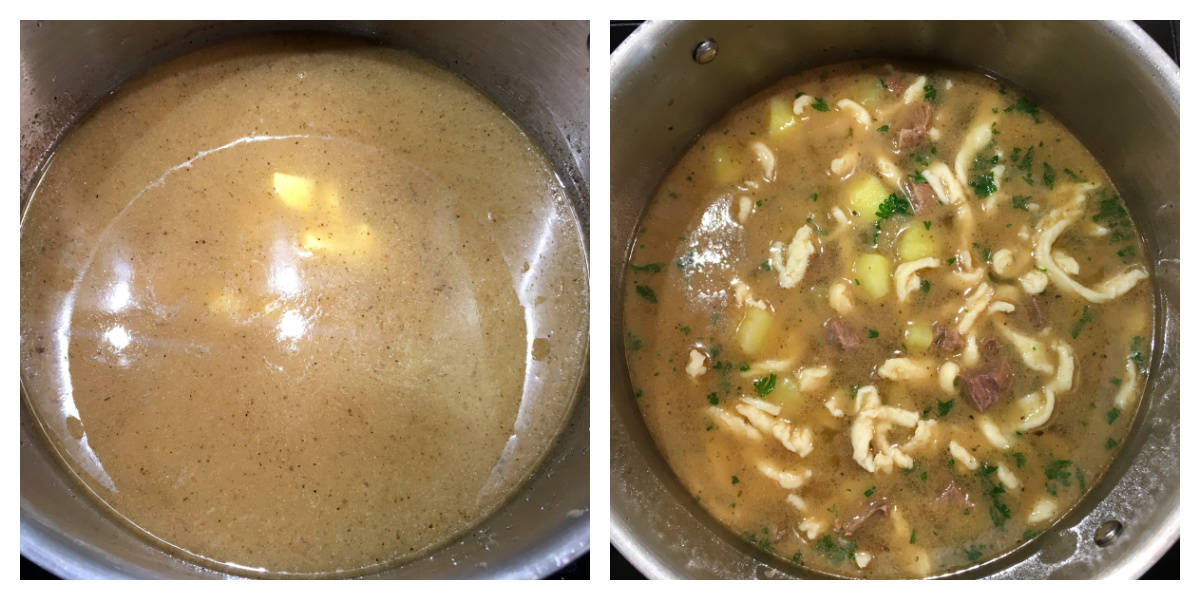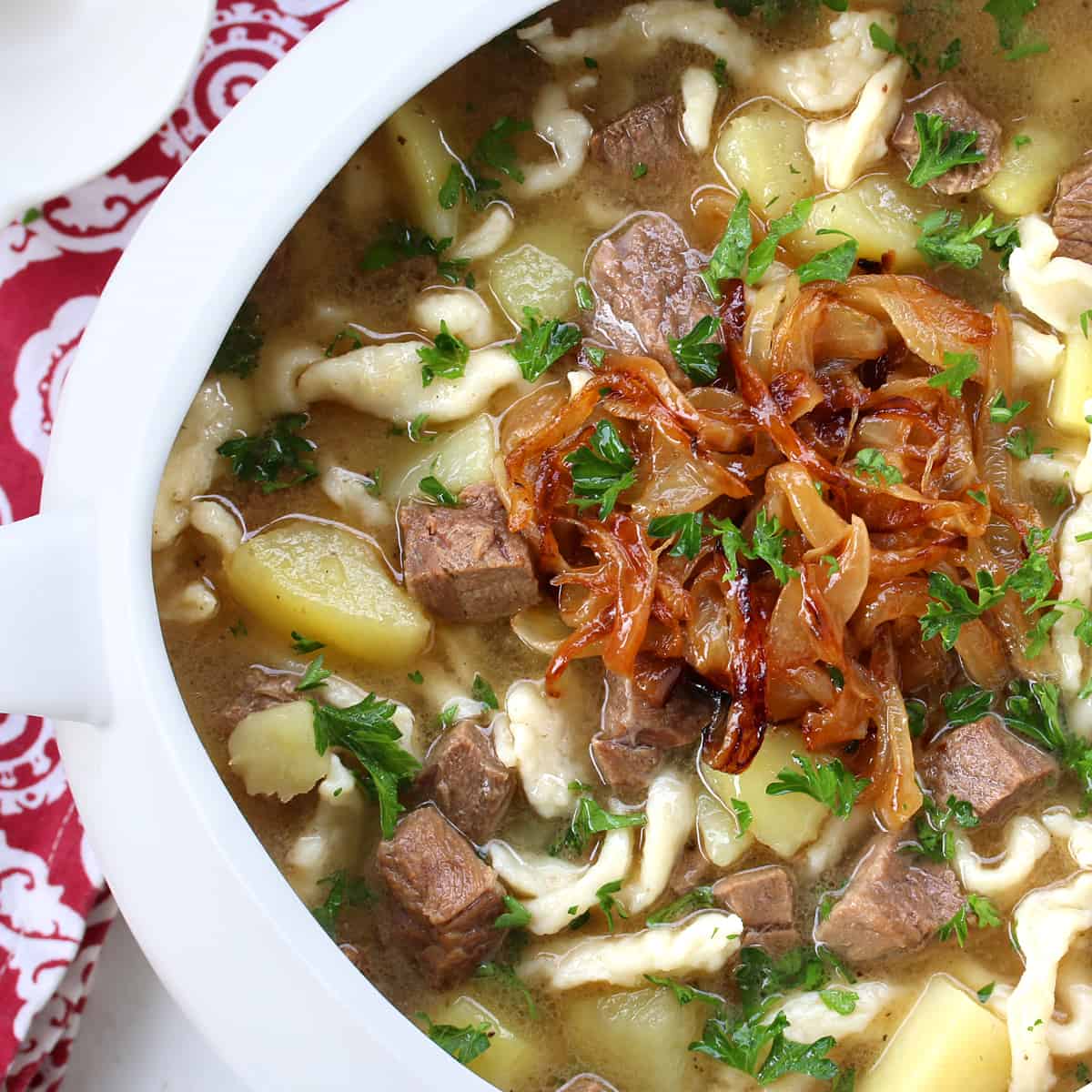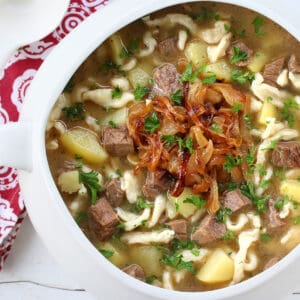The famous stew from the Gaisburg suburb of Stuttgart, Germany, Gaisburger Marsch is a traditional stew that encapsulates everything that is delicious about Swabian cuisine. Tender beef, Spätzle, and potatoes in a luxuriously rich broth and topped with onions caramelized in butter. It just doesn’t get any better!
Growing up in Stuttgart, Germany, I have a special affinity for Swabian cuisine. Born in Bavaria and later raised in Stuttgart, my mother enjoyed a cooking education from Germany’s best food regions. She is a marvelous cook and regularly made us dishes from all around the world. But her Swabian cooking in particular has always given me sense of comforting “groundedness” and reminds me of home. My mom’s Gaisburger Marsch was always one of our favorite stews. Watching her ladle bowlfuls of it from the soup tureen we eagerly awaited that first mouthful, always making sure to get some of those glorious caramelized onions on the spoon. Gaisburger Marsch is one of those traditional Swabian dishes that are known in every Swabian household and while it occasionally appears on restaurant menus in Swabia, it’s definitely not “tourist fare.” I like to think of it as one of our “insider” secrets.
What is Gaisburger Marsch?
Gaisburger Marsch is a traditional Swabian stew featuring beef cooked in a rich broth with potatoes, Spätzle, and topped with caramelized onions. The dish is named after Gaisburg, a suburb of my hometown of Stuttgart in Baden-Württemberg, Germany. The settlement of Gaisburg was established sometime in the 11th or 12 century and the community remained independent until being incorporated into Stuttgart in 1901. This dish is believed to have originated some time in the 19th century as a way to use up leftovers. Marsch is German for “march” and there several legends surrounding its origin. One is that the stew was so popular among 19th century soldiers that they would march all the way from their barracks to a restaurant in Gaisburg, the Bäckerschmide, just to enjoy a serving of it. The other story goes that when the soldiers from Gaisburg became prisoners of war and provisions were sorely lacking, their wives created this hearty and nourishing stew and that they would march into camp to bring to their men. The September 25, 1933 edition of the newspaper, the Stuttgarter Neues Tagblatt, later confirmed this sentiment when it wrote,”For us Stuttgarters we only need to remember the famous and justifiably popular ‘Gaisburger March’…a stew that, if it is well prepared and well seasoned, feeds its man very well.” Include women in that and I couldn’t agree more!
Gaisburger Marsch is definitely a labor of love. Especially if you are making everything from scratch which, for the best flavor results, is what I recommend. Everything from roasting the beef marrow bones for the homemade broth to making your own Spätzle. To enjoy Swabian cuisine at its best, you don’t cut corners! That said, I provide an alternative to the most time-consuming aspect of this recipe and that is to substitute beef broth for the roasted beef bones and water – but don’t omit anything else! Celeriac and leek are both a must to achieving an authentic German flavor. In Germany, the combination of celeriac, leek, carrots and parsley are staple ingredients in almost any clear broth base. So much so that you can get these in the produce section of grocery stores already tied together in grab-and-go-bundles called Suppengrün (“soup greens”).
Choose quality ingredients (including the beef broth if you’re choosing to skip the beef marrow bones), don’t omit any of the ingredients, and your efforts will be rewarded. The end result will be a very authentic Gaisburger Marsch that is incredibly delicious and thoroughly satisfying!
Gaisburger Marsch Recipe
Let’s get started! If you prefer to skip this step, omit the bones and use a good beef broth in place of the water and proceed with the instructions as written. Preheat the oven to 450 degrees F. Lay the beef marrow bones on a lined baking sheet. Roast the bones for 25-30 minutes or until they’re nicely browned.
Rough chop the celeriac, leek, carrots, and onions and leave the parsley sprigs whole.
Place the roasted bones in 10 cups of water in a heavy stock pot (if omitting the bones use 10 cups of quality beef broth). NOTE: If you’re using beef short ribs instead of diced stewing beef you’ll add them now (see Note in recipe box below for detailed instructions) . Add the vegetables and parsley along with the bay leaves, peppercorns, garlic, and dried herbs. Bring to a boil, reduce the heat to low, cover and simmer for 2 hours. Skim off any brown foam that forms. (If you’re not using the bones and are using beef broth instead, reduce the heat to medium instead of low and simmer for 40 minutes).
While the broth is simmering prepare the caramelized onions. Melt the butter in a pan over medium high heat and cook the onions until soft and translucent. Add a small pinch of salt and a small pinch of sugar and continue to cook the onions, stirring every few minutes, for at least another 30 minutes until nicely browned. As the onions turn more brown and begin sticking to the pan, reduce the heat to medium. Add a little more butter if needed. Set aside until ready to use. Note: You can make these in advance and keep them covered in a bowl in the refrigerator for up to a week.
Once the broth is done, pour it into a large bowl through a fine mesh strainer. Clean out the pot and return the strained broth to the pot.
Add the beef, potatoes, salt and pepper to the broth, bring to a boil, reduce the heat to medium, cover and simmer for about 30 minutes or until the beef is tender. Add the cooked Spätzle and parsley and heat through. Add salt and pepper to taste. (You can either make our homemade Spaetzle or use store-bought.) This soup makes great leftovers and tastes even better the next day.
Ladle the Gaisburger Marsch into bowls and top with some of the caramelized onions. Garnish with some chopped parsley. Enjoy!
For more delicious authentic German recipes be sure to try our:
Rouladen Sauerbraten Schnitzel Jägerschnitzel German Goulash Maultaschen Frikadellen Spätzle Käsespätzle Currywurst German Potato Soup Sauerkraut Soup Kartoffelpuffer German Potato Dumplings Flädlesuppe German Bread (Vollkornbrot)
Read more about me…
